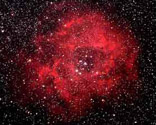 |
Unit 10 Reading Passage |
 |
||||||||||||||||
 |
||||||||||||||||
 |
||||||||||||||||
 |
||||||||||||||||
|
||||||||||||||||
 Andromeda Galaxy |
How is the UN involved in the peaceful uses of outer space? |
How can space satellites revolving countless miles beyond the earth's atmosphere help the economic and social development of nations here on earth? These observation satellites can aid development by viewing and photographing the earth from a unique perspective. By doing so, such satellites can provide information about the earth's climate and weather changes -- and even foresee when natural disasters such as hurricanes or earthquakes may strike. Since, as the saying goes, "to be forewarned is to be forearmed", such advance knowledge of impending disasters can allow time to plan for proper management of such emergencies. Such planning becomes especially urgent in the case of developing countries where a single natural disaster has the power to wipe out years of effort toward economic progress. Under the coordination of the UN Office of Outer Space Affairs, satellites that were once used for strategic military planning during the Cold War of the 1950's and 60's are now used for peaceful purposes that help protect and develop life on earth. Two major satellite systems, the Global Positioning System (GPS) of the United States and the Global Navigation Satellite System (GNSS) of the Russian Federation now provide non-encrypted signals free of charge. The satellites supply information with useful applications to civilian life, such as navigating airplanes, ships, and land vehicles with greater safety. The Office of Outer Space Affairs is also involved in education projects that allow students to learn applications of space technologies. A programme called UN-STARS lets students design space shuttle experiments, which they can track via the Internet --while thousands of other online students also watch and learn. There are also plans for student experiments to be conducted aboard the International Space Station. In addition, under a UNESCO programme, satellite technology allows for the creation of "virtual classrooms" that broadcast sound and visual images, which elementary school teachers can incorporate into their lessons in schools in developing countries. The technology also allows for students to interact, sending feedback and questions about the lessons. The UN Office of Outer Space Affairs also uses satellites to provide information that is crucial to our understanding of global climate change. In their publication, Space Matters, UNOOSA explains, "Satellites allow climate change researchers to compare the dynamics of ice in polar caps and glaciers in Asia, America and Europe." In addition, satellites allow scientists studying global climate change to track changes in sea levels. Finally, satellites provide the information necessary to monitor essential climate variables; and track changes in carbon stocks. UNOOSA is responsible for providing "awareness training and capacity-building activities related to the collection of, access to, and use of satellite-based data and information in support of sustainable development in the context of climate change." The use of space technology has so many
applications to human life that the famous writer of science fiction,
Arthur C. Clarke, keynote speaker of
the UN UNISPACE III conference, spoke of the need for space exploration to
continue, saying, "...if we cease to explore, we
will cease to be human. I do not believe that we will resist the challenge
of the final frontier, just when
it is opening up ..." |